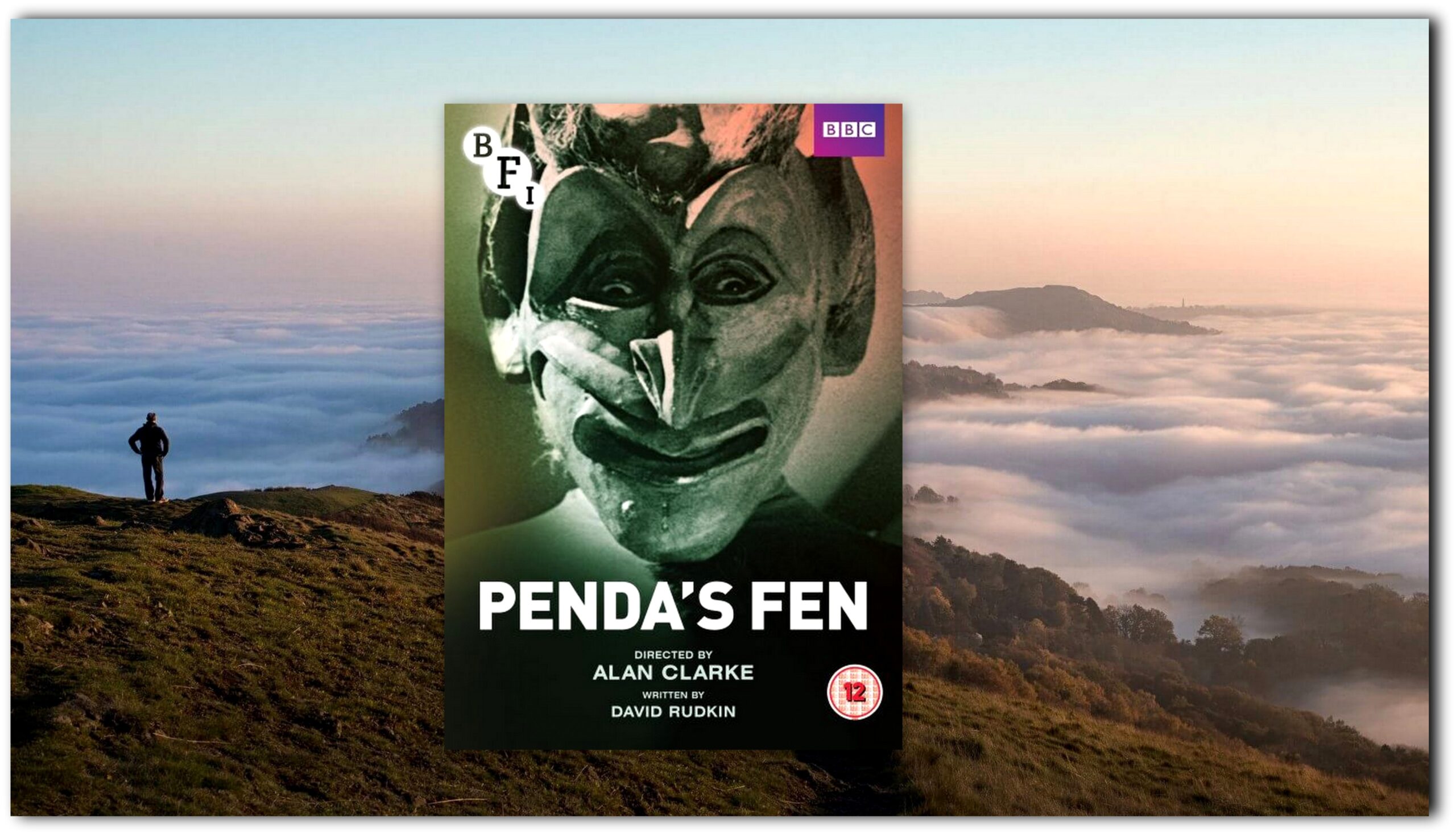
Thomas Sheridan and Greg Moffitt discuss the film Penda’s Fen and related themes and topics.
(Stream / download audio at bottom of page)
In 1974, the BBC broadcast the film Penda’s Fen, leaving audiences mystified and spellbound. “Make no mistake. We had a major work of television last night,” The Times declared the next morning. Written by playwright and classicist David Rudkin and directed by Alan Clarke (Scum, Made in Britain, The Firm), Penda’s Fen follows Stephen, an 18 year-old boy, whose identity, sexuality, and suffocating nationalism unravels through a series of strange visions. Set in the village of Pinvin against the backdrop of the Malvern Hills, the film is an evocation of conflicting forces within England past and present, and most of all, its mystical, ancient pagan past. After its original broadcast, the film vanished into unseen mythic status, with only a single re-broadcast in 1990 sustaining its cult following. With a DVD release in 2016, Penda’s Fen has now become totemic for those interested in England’s deep history, folklore, and landscape.
Previous interviews with Thomas Sheridan
Bumper music: Cliff Martinez ‘Traffic OST’
Dovinia ‘The Way of Wyrd’

3 comments
The hand chopping scene – my take:
Look at how everybody is to have their hands chopped off. All of them happy before, during, and after.
My thought is that in order to comply you have to lose something about yourself.
Fascinating thought, thanks for that! Historically in some parts of the world thieves would have one hand cut off as punishment. I also thought of the scene in Escape From Alcatraz where the painter cuts his own fingers off after having his painting privileges removed.
Great discussion, as always between you two! Penda’s Fen has been on my to-watch list for a long while, so seeing this discussion posted I finally got around to it.
It was nothing like what I was expecting, that’s for sure.
Synchronistically, it seemed to tie into ideas I had already been thinking about a lot lately, the strange hinterlands between heretical Christianity and paganism. While never fully embracing the Christian religion as such, I have been immersing myself in its symbolism for several years, I suppose as a retreat from the mangled contemporary situation, so obviously spiritually bereft, towards something more traditional and therefore grounded. But lately I’ve been feeling increasingly dissatisfied with the conventional Christian narrative, as I’ve begun to recognise the repressed paganism intrinsic to the dualism between its archetypes of good and evil, God and the Devil, the Devil obviously being a demonic interpretation of the common pagan archetype of the horned god.
I’m interested in the idea that a reappraisal of Christian heresies such as Gnosticism which in certain iterations sees God and the Devil as two halves of a singular being may present a way to resurrect the virtues of the old pagan religion, which in its original form it seems to me is more or less unrecoverable, having been so thoroughly erased, at least in England. So I found the themes of the film very stimulating, and was particularly drawn to the figure of the pastor. Thomas Sheridan’s comparison of his walk with Stephen to the penultimate chapter of Ulysses was very apt, I thought, and deepened my appreciation of that remarkable scene. As you both commented, the depth and nuance of the dialogue as well as the sheer boldness of the film thematically, elevate it to a level of quality we simply aren’t accustomed to. Certainly not today, and from the sound of it, not even at the time it was released! But maybe its time will come yet. It certainly struck a chord with me.
Leave a Reply
You must be logged in to post a comment.